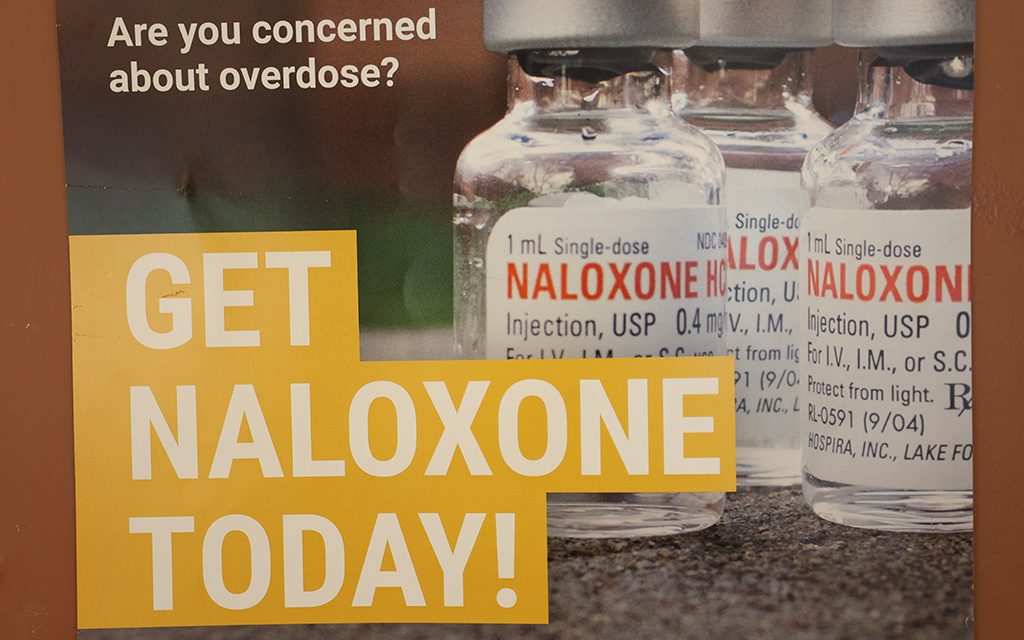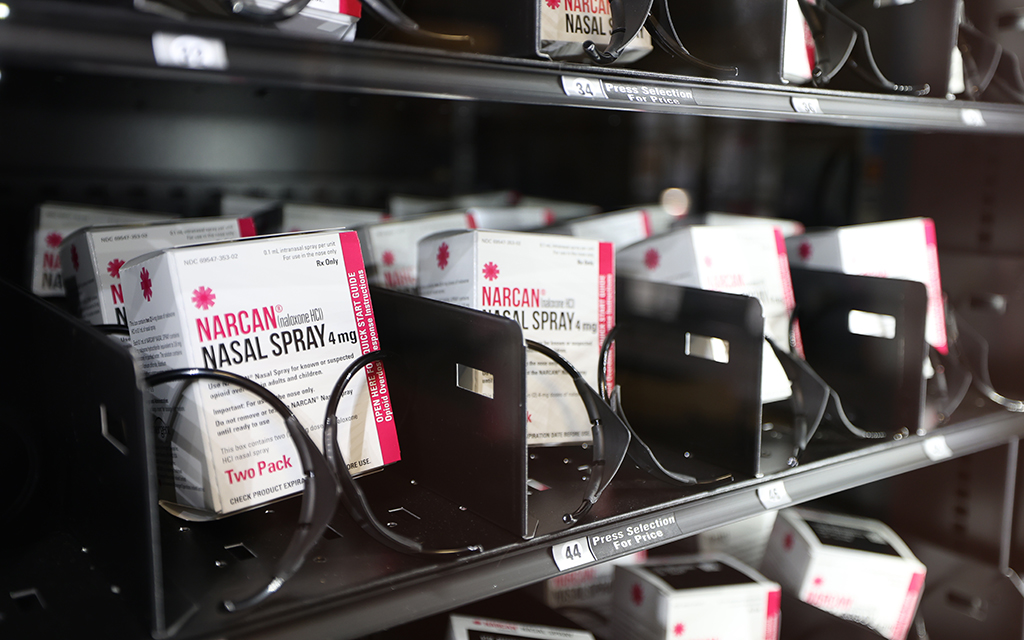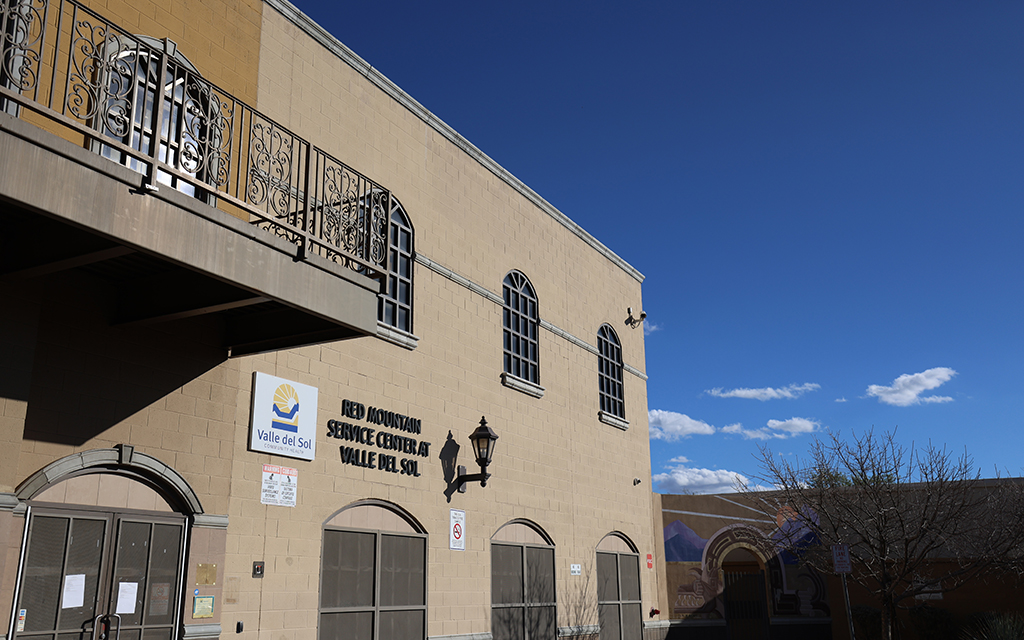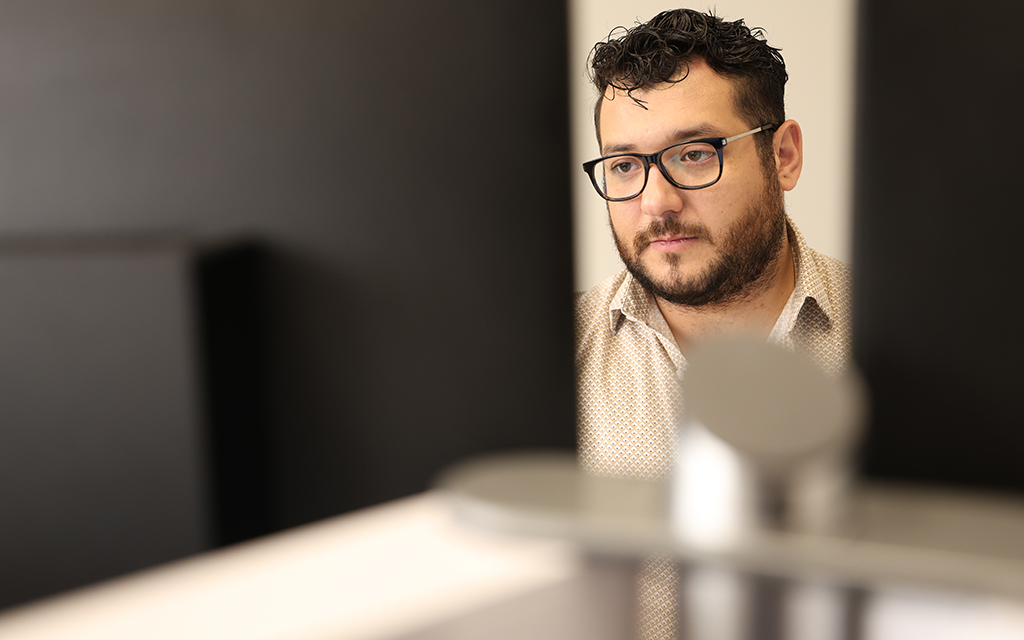PHOENIX – Valle del Sol, a health clinic serving Latino and underserved communities in Phoenix, recently unveiled a naloxone vending machine at its south Phoenix location on S. First Avenue and Buckeye Road.
The vending machine dispenses the medication for free without requiring the person to interact with staff. Naloxone, branded as Narcan, is a medication designed to rapidly reverse overdose from opioids such as heroin, morphine and oxycodone. It is a temporary treatment that could revive someone in time for emergency personnel to respond.
“It’s a great alternative to have (because) Narcan can give you between 45 to 90 minutes to revive someone if they’re unconscious,” Walter Vidal, marketing and communications manager at Valle del Sol, said.
Anyone can come and get naloxone from the clinic, but the vending machine makes it easier for vulnerable people to get the medication discreetly and keep it on hand for an emergency.
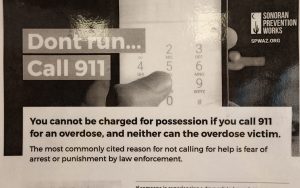
A poster in the lobby of Valle del Sol informs people that they can’t be charged with possession of drugs when calling emergency services to report an overdose. (Photo by Jack Orleans/Cronkite News)
“Honestly, we know that in downtown Phoenix we have a lot of people without housing, and this clinic is one of the clinics where we offer an opioid treatment program, so that’s why we wanted to keep it there,” Vidal said
The vending machine comes almost a year after the Food and Drug Administration announced approval for over-the-counter sales of naloxone. Before March 2023,it was available only by prescription.
Since it was installed in January, the vending machine has had to be restocked once already and there have been more requests for naloxone at the clinic’s counter, Vidal said.
“There’s a lot of stigma still with patients and relatives asking for Narcan, or having Narcan, because there’s still a lot of stigma with substance use and drugs,” Vidal said.
The stigma can also be seen with people getting naloxone during public events, according to Bryan Kuhn, a pharmacist and clinical toxicologist at the Banner Poison & Drug Information Center.
“You can visibly tell that there’s this association between holding Narcan and what that might mean to those looking at the person holding the Narcan – that it’s something less than desirable,” Kuhn said.
However, while the vending machine has provided a way to get naloxone into the community in a more discreet way, Kuhn has reservations about the lack of instruction on how to give the medication.
“There’s really no reason to withhold giving naloxone. What you potentially lose from these vending machines is some of the nuance of what to recognize, when to give it and what sort of effects to expect afterward,” Kuhn said.
In addition, there are two different kinds of naloxone: an injectable version and a nasal spray.
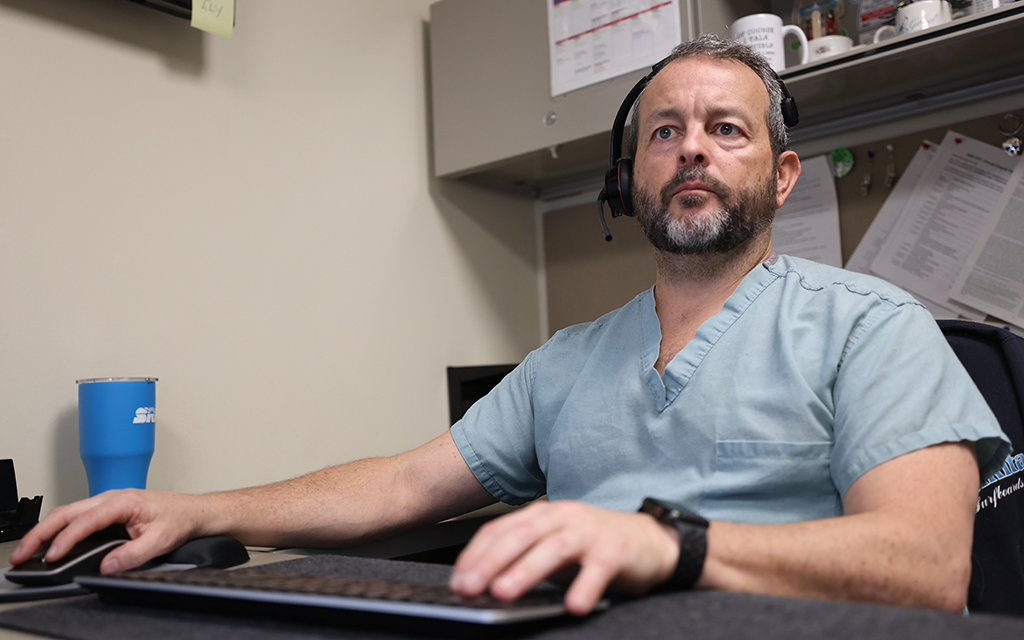
Bryan Kuhn works at his desk in the Banner Health toxicology department, on Feb. 5. As naloxone becomes more widespread, he says that people may not be prepared for what happens after using it to revive someone. (Photo by Jack Orleans/Cronkite News)
According to Kuhn, they’re the same drug. However, the nasal spray requires less technical knowledge and may prove to be easier to use for someone who’s inexperienced with delivering medications via injection.
Kuhn said people may not realize that administering naloxone may induce withdrawal in people dependent on opioids, and there are other side effects to administering the drug such as pulmonary edema, which is fluid in the lungs.
“If you’re not well-versed in what the process is or what to look for afterward, that’s a pretty stressful situation,” Kuhn said.
Another worry is people not being able to read the instructions in an emergency, Kuhn said. There are instructions in the box, but a life-threatening emergency may not allot the time needed to go over them thoroughly.
“It’s not like when you’re in that stressful scenario, you’re going to be able to pay attention to 100% of the details,” Kuhn said.
Arizona recorded 1,927 opioid overdose deaths in 2022, the most recent data available from the Arizona Department of Health Services. While that was down slightly from the 2,019 deaths in 2021, the department noted that it still meant more than five people still die every day from opioid overdoses in Arizona.

